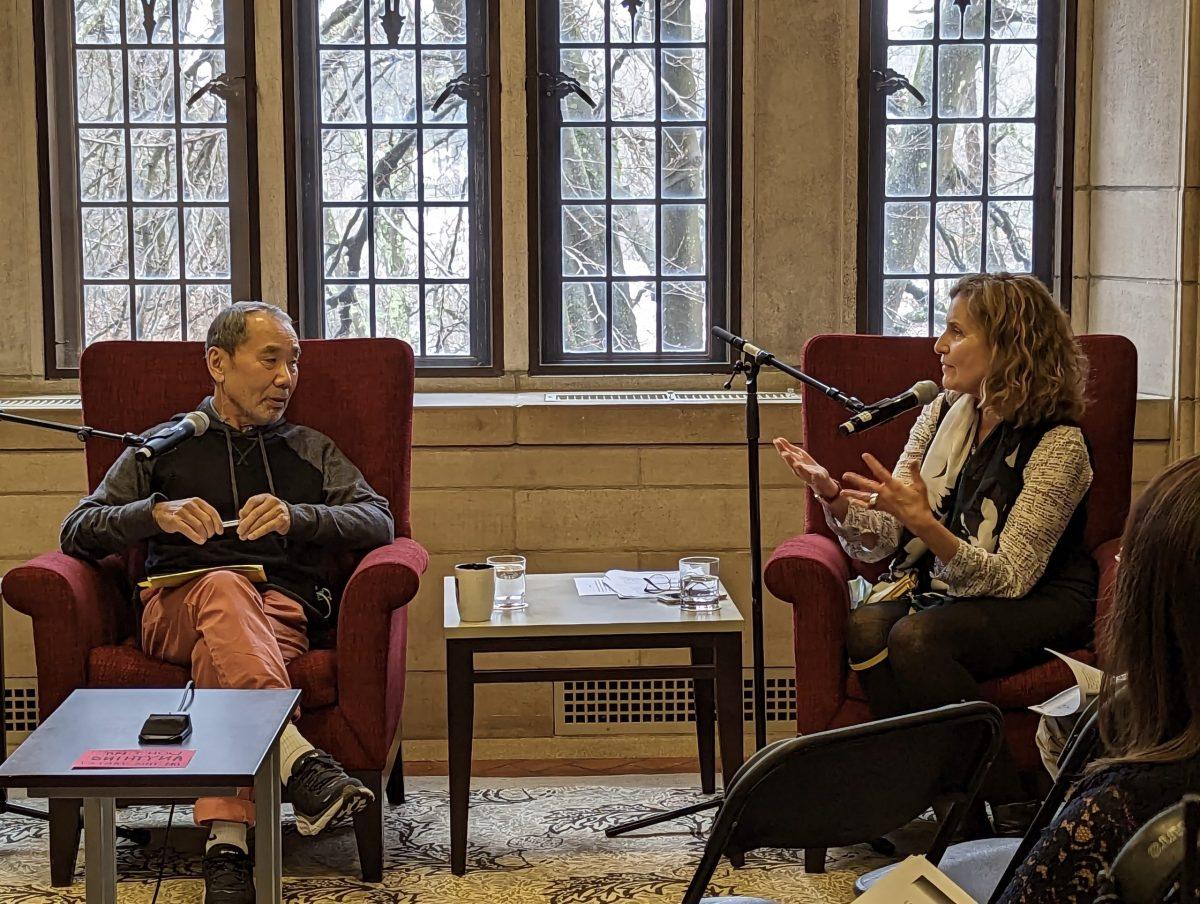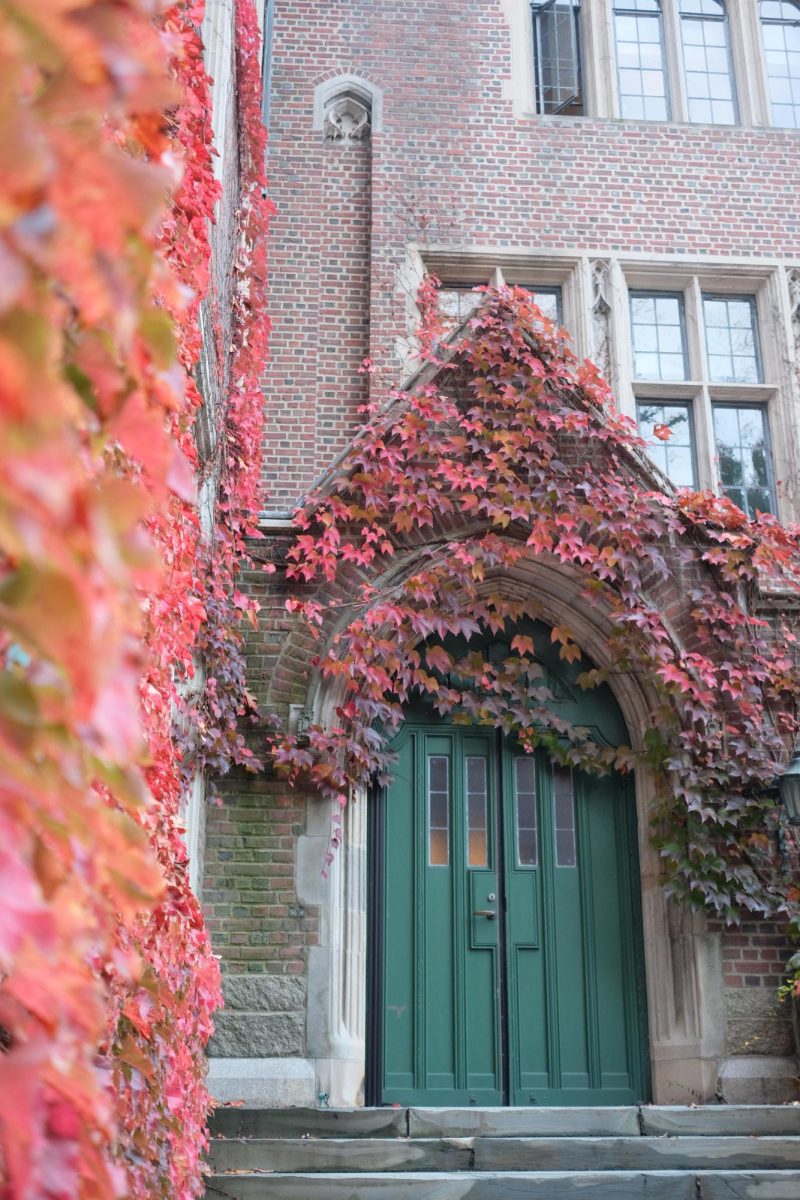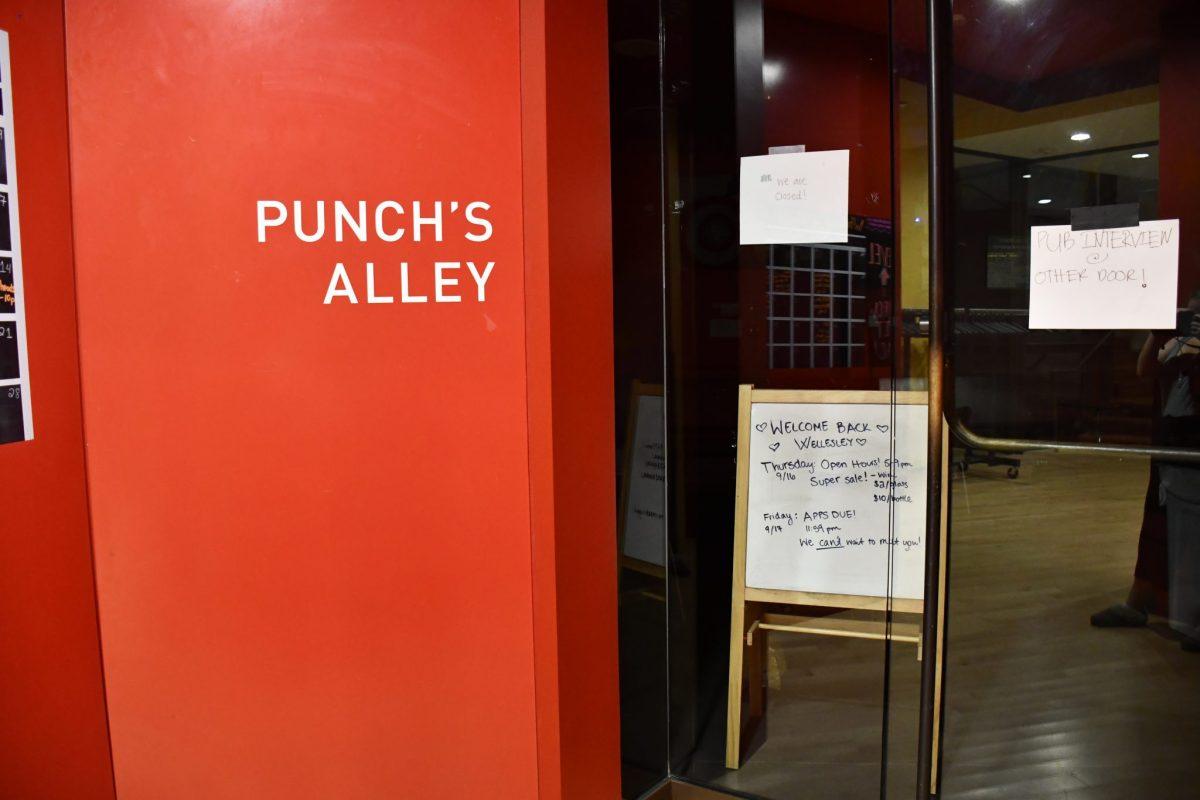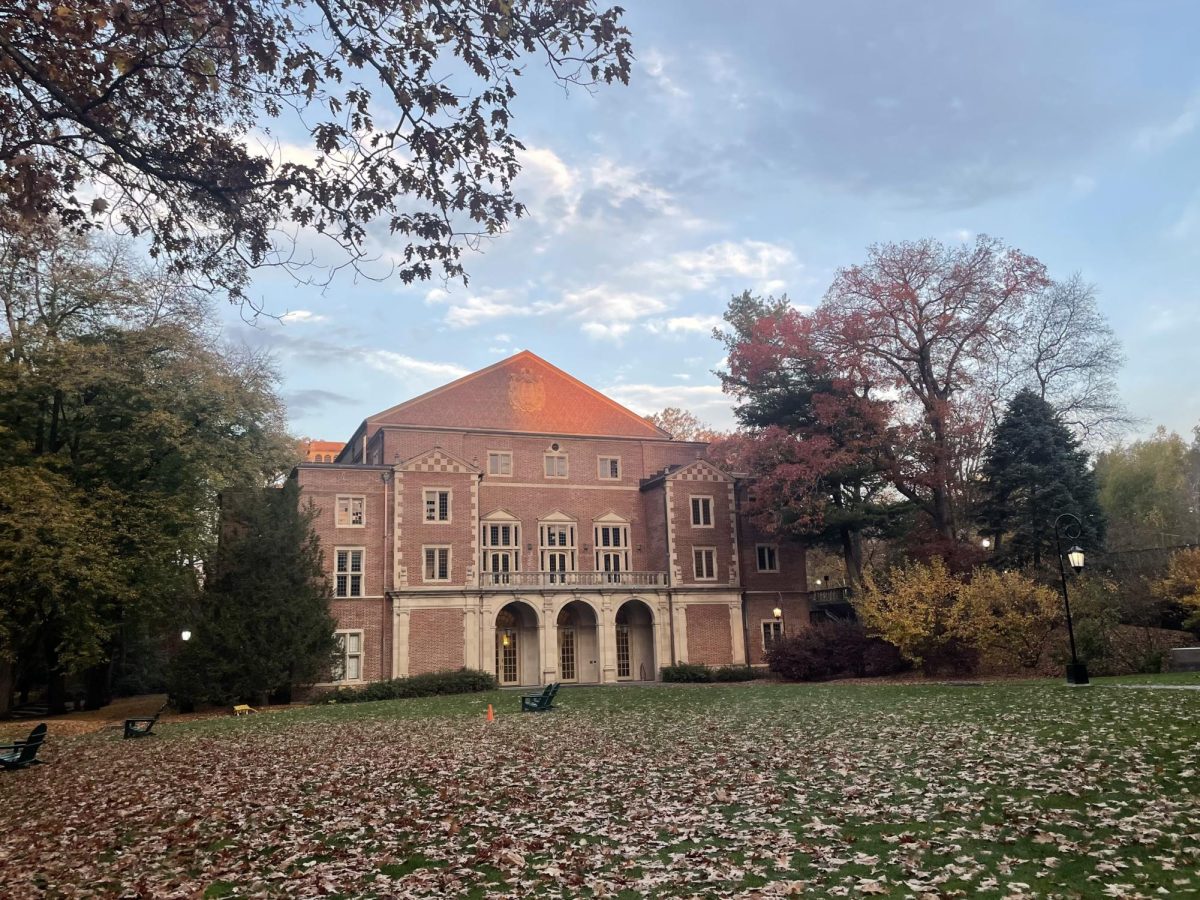On Sept. 9, 2022, President Paula Johnson welcomed the College community back for another school year via email. Amongst many other announcements, it was also announced that the Mary L. Cornille Distinguished Visiting Professor in the Humanities for 2022-23 would be internationally renowned author Haruki Murakami. The news created considerable buzz amongst students and faculty.
Murakami, one of the literary world’s foremost writers, has published over a dozen novels, several short-story collections and works of nonfiction, all of which have been translated from their original Japanese into more than 50 languages. Some of his most recognizable titles include “Kafka on the Shore,” “Norwegian Wood,” “1Q84” and “Killing Commendatore.” Murakami’s fiction is distinctive in its experimental nature and exploration of spaces where the self can be transformed. His prose style contains a characteristic blend of simplicity, surrealism and philosophical inquiry, which draws readers of all ages with a moonlike pull.
In an Oct. 2022 interview with The Wellesley News, Murakami expressed why he was drawn to accept the College’s invitation: “I’ve run the Boston Marathon six times and was always greatly encouraged by the Wellesley students who cheered us on as we passed through the Scream Tunnel. But I’ve never really had the chance to spend time on your beautiful campus, so I thought it might be a good opportunity to get to know it better.”
Each year the College is able to appoint a visiting professor of the humanities to be in residence for a semester or a year, and Murakami was invited by the Suzy Newhouse Center for Humanities through this process. In the duration they are here, they engage with the College’s students and faculty through seminars, courses and lectures, as well as other informal ways. Past visiting professors in recent years have included Rosemary G. Feal, executive director emerita of the Modern Language Association of America, and Emmanuel Akyeampong, professor of history and African American Studies and the Oppenheimer director of the Center for African Studies at Harvard University.
This past semester, Murakami has been leading a faculty seminar on what his fiction says about gender. The faculty have been reading his short stories written in a woman’s voice and having free form discussion with the writer, receiving a window into Murakami’s creative process. Also present at some of the faculty seminars is Murakami’s wife, Yoko Murakami, who brings an interesting perspective to the conversation as both a woman and Murakami’s first reader. Newhouse Center Director and Professor of Japanese Eve Zimmerman, recalls in a discussion on the short story “Sleep,” “[The faculty was] basing an argument about gender on the fact that the story moves in present tense.” In the midst of this conversation, Yoko stood up and voiced a clarification. She explained that the grammar the faculty’s interpretation hinged on was not an issue in the original Japanese version. To Zimmerman, “the fact that she just stood up and said, look, let me give you another perspective, was just fantastic.”
In addition to the faculty seminar, Murakami has made two appearances in a course this spring taught by Zimmerman, “Haruki Murakami and Modern Japanese Literature.” Offered by the College’s East Asian Languages & Cultures department, the class explores Murakami’s world-making by reading half of his major novels, in addition to short essays and non-fiction works. In the time that students spent engaging in discourse with the writer, they covered a rich variety of topics. Murakami commented on space within his stories, noting that libraries are a “special station” that often appear in his works. He revealed interesting tidbits about his writing process; sometimes he comes up with a title first, then takes it as a challenge to form a story to fit it, “Kafka on the Shore” being one such example.
Eva McNally ’25, a student in this class, recalls when Murakami was asked about how he enters the mindset to write a female character, “he said something along the lines of ‘every man has a female factor, and every woman has a male factor.’ For him to write a female character, he has to find the female factor within himself … and the other versions [of himself] that exist within the subconsciousness.” Unlike attending a book signing or watching an interview, students were given the opportunity to engage critically with Murakami in an academic setting.
Beyond the classroom, Murakami also collaborated with the Wellesley Japan Club, hosting “Tea Time” with Haruki Murakami at Acorns House in March. A group of approximately 25 students were selected through application to attend the event with both the writer and his wife Yoko. The tea lasted for an hour, during which students had an engaging discussion with both of the Murakamis, who appeared excited to be on campus and interacting with students. Kazu Shimada ’23, who is the Co-Cultural Chair of the Japan Club, said that the event had a memorable intimacy: “I was really happy to know more of the personal side of how Haruki Murakami has viewed his life and his advice on life to us college students who … are in a limbo stage, trying to adult in this world.” Another highlight from the event, as told by the Japan Club’s EALC Liaison Takami Harano ’25, was the opportunity to ask Yoko questions. Unlike her husband, scarce information can be found about Yoko online, so receiving her perspective has been particularly special.
In his time as a Cornille Distinguished Visiting Professor, Murakami has enriched the intellectual life of the College. When asked what he hoped to gain from his time in residence, he answered simply and humbly: “I try not to think in terms of what I might gain. But I find that being in a new place tends to inspire new thoughts and ideas. I’ll just have to see what happens.”
Murakami’s last event at Wellesley will be the highly anticipated Cornille Lecture, taking place on the evening of April 27. At this community-wide event, he will be sharing his reflections on writing in an era of COVID-19 and war. The lecture will be followed by a short question and answer session moderated by Zimmerman. Although students and faculty eagerly await to see the spaces of Murakami’s mind we will be made privy to, he views his lecture with resounding modesty: “Well … I’m just a writer. The only thing I really know anything about is HOW TO WRITE. So perhaps I’ll talk about that.”
Zainab Khan and Sanna Walker contributed to reporting.




